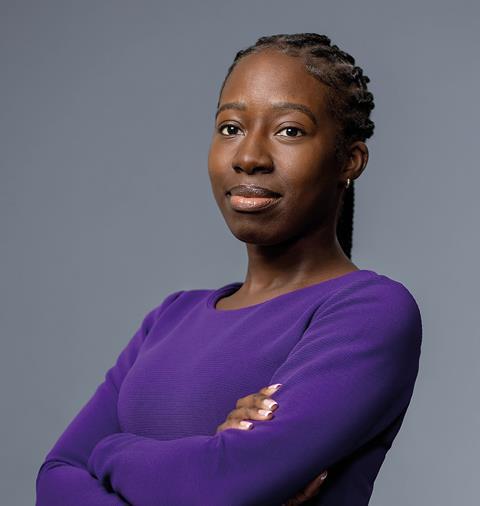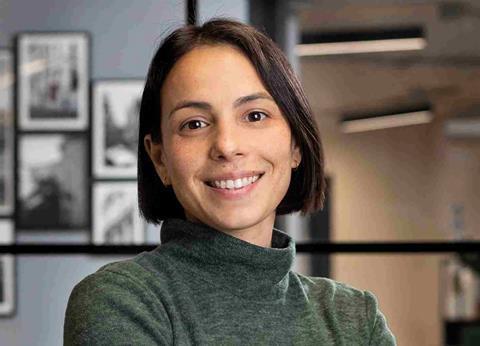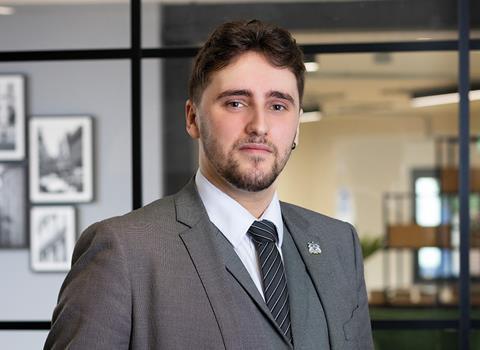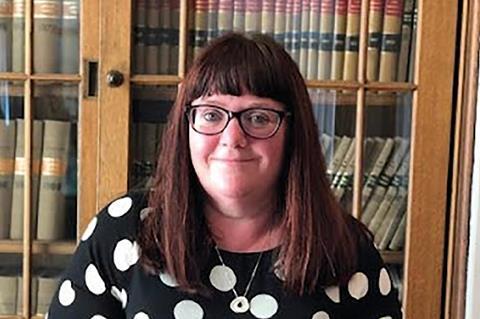For 20 years the Law Society’s Diversity Access Scheme has helped aspiring solicitors from disadvantaged backgrounds become solicitors. Catherine Baksi discovers that it has never been more needed
The low down
There have been concerted efforts over the years to make the legal profession more representative. Yet the socio-economic diversity of solicitors has fallen since 2015 and the number of lawyers who declare a disability remains small. The high price of legal training and the cost-of-living crisis are among the obstacles that remain to attracting more students from disadvantaged backgrounds. Twenty years ago, the Law Society set up its Diversity Access Scheme, a scholarship programme designed to address barriers to entry. It has helped 300 people to achieve their dream of becoming a solicitor. Yet more could be done. Could law firms – especially the richer ones – offer more financial support?
Since its 2004 launch, the Law Society’s Diversity Access Scheme (DAS) has enabled 300 people to become solicitors who would otherwise have been excluded from the profession by dint of their background.
DAS supports students who face social, educational, financial or personal obstacles, funding them through the Legal Practice Course (LPC) and the more recent Solicitors Qualifying Examination (SQE) with scholarships, mentoring and work experience.
The scheme remains much needed. While the profession has sought to increase the diversity of those both entering it and reaching senior positions, the latest figures from the Solicitors Regulation Authority – collected last summer – show that the number of lawyers from lower socio-economic backgrounds fell from 21% in 2015 to 18% in 2023.
Though the routes through which students can train to become a solicitor have multiplied, the cost remains prohibitively high for many from poorer backgrounds. Full-time fees for the LPC range from £9,000 to more than £17,000, depending on the type of course chosen and provider. The cost of taking the two parts of the SQE is almost £5,000. Institutions charge between £4,000 and £6,000 for the preparation courses.
A personal record
'Being a black woman from a state school, there were quite a number of additional barriers for me in accessing the profession. The DAS award opened the door'
Whitney Joseph, Mayer Brown
Whitney Joseph, 32, qualified as a solicitor in 2018 and is a senior associate at Mayer Brown specialising in banking and finance. Her parents came from the Caribbean island of St Lucia and she was born and brought up in east London.
Joseph has the serious and long-term inherited condition sickle cell anaemia, which disproportionately affects people from an African or Caribbean background.

She has been in and out of hospital throughout her life. This negatively affected her education and grades at both school and the University of Essex, where she studied law. Becoming a lawyer appeared an insurmountable hurdle.
‘Being a black woman from a state school, there were quite a number of additional barriers for me in accessing the profession,’ says Joseph. ‘The DAS award opened the door.’
Beyond funding law school, she says the scheme ‘gave me the opportunity to meet other people, particularly other black women, from similar backgrounds and hear their stories, ask their feedback and receive their support’.
Above all else, says Joseph: ‘The award gave me the confidence I lacked. In a profession which can be incredibly intimidating to someone from my background, it took me from feeling as though I wasn’t competent enough, to feeling like I was just as capable as other candidates. It was the vote of confidence that I didn’t know I needed at the time.’
'Without [DAS] I could not have financed the LPC, so it helped me with the huge financial burden of law school'
Helen Mead, Hanne & Co
Helen Mead, 37, is a specialist family law solicitor at Hanne & Co, having qualified with the firm in 2020. A DAS scholarship paid for her to complete the LPC, which cost £14,000.
Mead grew up in an ‘ordinary working-class family’ in south-east London. Her mother, originally from Burma, was a homemaker before becoming a bookkeeper. Her father had various jobs, including working as a chef, a lorry driver, and owning a Domino’s pizza franchise.
Despite being academically inclined and doing well at school, the thought of becoming a lawyer had never occurred to her.

It was only when she began a history degree at university and met others who were studying law that becoming a solicitor ‘seemed a possible career path’.
She began applying (unsuccessfully) to big commercial law firms, because they offered funding for the law conversion course and LPC and she could not afford to pay.
Mead eventually got a job at the Crown Prosecution Service, before moving into the charity sector and qualifying as an immigration adviser helping refugees.
‘Driven by a desire to help people and a passion for access to justice’, Mead decided to retrain as a solicitor and put herself through the Graduate Diploma in Law (GDL) course. She attended lectures at London’s South Bank University in the evenings after work for two years, while looking for ways to fund the next stage.
‘Without [DAS] I could not have financed the LPC, so it helped me with the huge financial burden of law school,’ says Mead. The scheme also paired her with a mentor, who was a family solicitor. ‘She helped me to prepare for interviews and opened my eyes to family law, to which I was well suited.’
'It is a great boon to have somebody in your corner essentially saying that ‘we believe that you can have a successful legal career, and we want to support you in getting there'
Michael Penlington, Hanne & Co
Michael Penlington, 25, was given a scholarship in 2022 that enabled him to undertake the LPC at London’s City University. He is now a trainee at Hanne & Co, working in the firm’s child care department.
Penlington grew up in Rhyl, ‘a somewhat deprived working-class seaside town in north Wales’. Brought up by his mother, who received no higher education and worked part-time for the council, he attended local state schools.
Unsure what career to pursue, he initially decided against university because he was reluctant to accrue student debt. Unable to find a job, he volunteered with the Prince’s Trust and became a ‘young ambassador’ for the charity, helping others find work experience. This gave him an interest in employment law, which led him to study law at the University of Lincoln.

He had not considered a legal career before, ‘in part due to simply being an indecisive teenager’, but also because of ‘a complete lack of exposure to the law’. Penlington adds: ‘I’m not sure I had ever met a solicitor prior to attending university and a legal career had never really occurred as an option.’
Studying law at university was the first time he had enjoyed academia and, ‘coupled with the support provided by the law school, a legal career not only felt like an option but the obvious choice’, he says.
Without the DAS scholarship, Penlington says he would not have been able to afford to continue his studies at law school. The scheme ‘provided invaluable guidance in entering a sector that felt somewhat inaccessible’, helping him to navigate a treadmill of ‘countless applications’ that could at times ‘be very demoralising’.
It also highlighted job opportunities that Penlington might not otherwise have found, including the vacancy for the training contract that he was eventually offered. He heard about that from an email he received from a DAS alumnus.
But the most beneficial thing that the scheme gave him, says Penlington, is the sense of being supported. ‘It is a great boon to have somebody in your corner essentially saying that “we believe that you can have a successful legal career, and we want to support you in getting there”,’ he says.
'When I was at school, the biggest career prospect was working in the local underwear factory'
Lisa Haythorne, Derbyshire Law Centre
Lisa Haythorne, 51, is a senior solicitor at Derbyshire Law Centre, where two of her colleagues are also DAS alumni. She grew up in a mining town during the strikes of the 1970s and 1980s and ensuing pit closures.
‘When I was at school, the biggest career prospect was working in the local underwear factory,’ says Haythorne. After leaving school she worked in a greengrocer’s shop before training to become a legal executive, working in a law firm and then a law centre.
She was initially supported by North Derbyshire Women’s Aid after a divorce, and then helped her father care for her blind mother. It was the law centre that encouraged her to pursue her ambition to become a solicitor.

After remarrying and having a second child, she passed the GDL. As a fellow of the Chartered Institute of Legal Executives, Haythorne was exempt from completing a training contract and ‘the LPC was then the only thing standing in my way’.
With a DAS scholarship, she was able to complete the LPC part-time over two years and was admitted as a solicitor in 2014.
‘My grandmother had been in service at the age of 14 to a president of Sheffield Law Society,’ says Haythorne, who in 2020 became president of the Sheffield and District Law Society. ‘My family has come full circle.’
Leasha Lynch, 31, a real estate associate at Winckworth Sherwood, grew up on a council estate in Tower Hamlets in east London. Her mother was a housewife and her father worked as a labourer in the construction industry.
Difficult personal circumstances meant that she did not get the grades needed to apply to university and also led to her leaving the family home at 18 and living on her own.
She undertook a part-time evening course in legal methods at Birkbeck University, while working to support herself, before getting a first-class law degree at London Southbank University.
With no lawyers or other professionals in her immediate family, and with no legal connections, poor A-level grades and a lack of funds, the outlook did not appear promising. But a DAS scholarship enabled her to complete the LPC, with a master’s degree in law, business and management.
As well as financial support, the scheme gave Lynch the opportunity to gain work experience to bolster her CV and ‘get back on to a level footing’ with some of her peers. This included in-house placements at Royal Mail and Barclays, and a vacation scheme at a City law firm.
Lynch now mentors DAS students and is a judge on the panel for assessing and interviewing applicants.
DAS route
The Law Society’s Diversity Access Scheme (DAS) is open to individuals living in England and Wales or those planning to reside there while continuing their studies.
Applicants will be required to confirm two or more of the following statements: that they attended a non-fee paying school; they are part of the first generation of their family to go in to higher education; and that they were eligible for free school meals while at school.
They will also be asked to confirm that they do not have access to familial loans or financial gifts, and that they do not have more than £5,000 in their savings account, current account or ISA, or in monies held elsewhere.
Applicants who do not meet those criteria may still be eligible to apply if they have faced or will face exceptional circumstances to pursue their studies as a result of their cultural background, health problems, disability, sex, gender identity, race, religion or other difficult personal circumstances. Candidates will be required to provide a brief description of those circumstances on the application form.
Examples of ‘exceptional’ circumstances that have been accepted include: coming from a family where women were not encouraged or allowed to pursue their education or career; travelling alone from a war zone or oppressive regime to the UK, without knowing anyone in the country; growing up in a house where domestic violence was a regular occurrence and being forced to move home and schools, thereby suffering educational and personal disruption; and family estrangement.
Circumstances that have not been accepted include: studying in a second language; travelling to the UK from a country with a high unemployment rate; and having a career change.
Supporters of the scheme include law firms Hogan Lovells, Kingsley Napley, Withers, Squire Patton Boggs, Bindmans and Browne Jacobson; and in-house legal teams including those at NatWest, UBS, RBS Group and Leeds City Council. The DAS is also supported by legal training providers including BPP University Law School, Barbri SQE Prep, Nottingham Law School and the University of Westminster.
Firm support
So what of the sponsors and supporters involved? Hogan Lovells is one longstanding scheme advocate. Julie-Anne Johnston, head of diversity, equity and inclusion for EMEA at Hogan Lovells, notes the benefits it brings – ‘not just to aspiring lawyers from less advantaged backgrounds, but for our firm in recruiting talented individuals from a broad pool of candidates’. She adds: ‘By embracing a diversity of perspectives, we can be more creative and ultimately deliver better solutions for our clients.’
The legal sector, accepts Linda Woolley, managing partner at Kingsley Napley, ‘has not always been, and for many still is not, a career option open to all’. But she insists that the scheme ‘helps to show that there is a growing commitment in our profession to improve diversity’. That, she adds, ‘is an important message to potential recruits’.
Having lawyers from diverse backgrounds, argues Woolley, ‘enhances our culture and helps us to better serve our clients’. It yields new ideas and perspectives, fosters creative thinking and problem-solving, and helps the firm to attract and retain diverse talent, acting as a ‘virtuous circle’.
Kingsley Napley became a DAS sponsor in memory of Brandusa Tataru-Marinescu, a lawyer at the firm who died in 2020 after being diagnosed with melanoma who was a passionate advocate for diversity and inclusion in the legal sector.
Since then, the firm has sponsored three people, the first of whom has just completed her studies and will be joining as a trainee in September.
‘The DAS scholarships are one of the most valuable achievements in bringing a more diverse group of candidates for qualification as solicitors,’ says Professor Sara Chandler, chair of the equality, diversity and inclusion committee of the Law Society of England and Wales. ‘Overcoming barriers which have made it difficult and prevented candidates from proceeding through the qualifying exams needs very determined students.’
In the last 20 years, the scholarships have allowed many students to achieve their goal of becoming practising solicitors, but Chandler laments that ‘each year the cohort is small in relation to the need’.
‘The barrier we need to overcome now is the lack of sponsorship by the most wealthy parts of the profession,’ says Chandler. She urges firms to ‘demonstrate their leadership’ by funding the scheme. ‘It’s a challenge which I am sure will be met by firms and organisations who understand the need to facilitate recruitment into the profession of a more diverse cohort of students.’

- For more details on the Diversity Access Scheme, click here.
Catherine Baksi is a freelance journalist






























